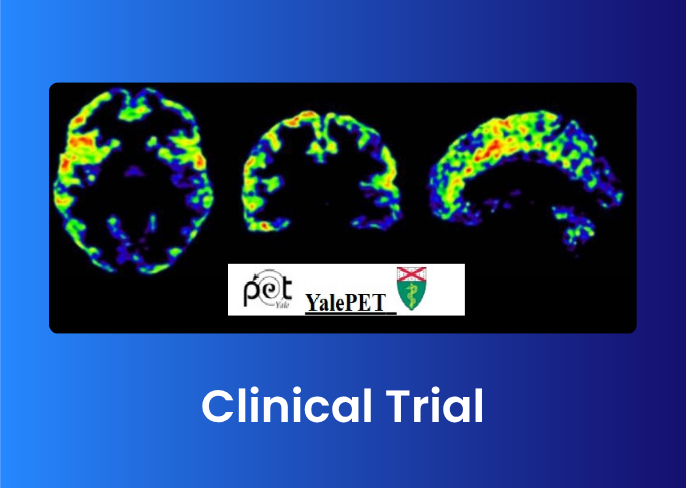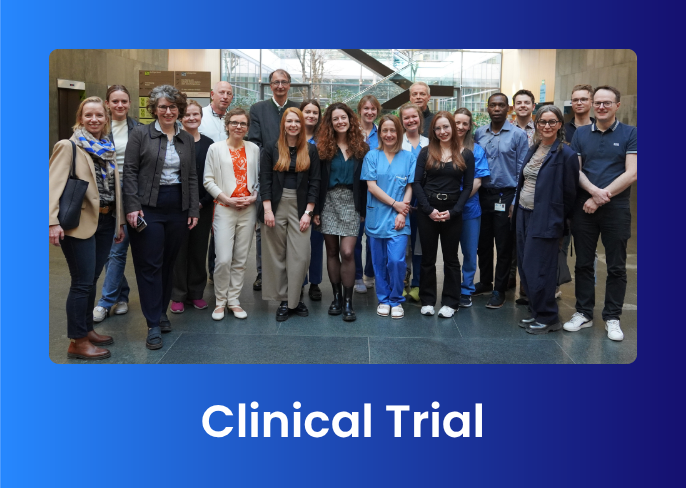Finding Clinical Trials
The forefront of Mission MSA research is where innovation meets compassion. Our dedicated team of experts and passionate advocates are committed to unraveling the complexities of Multiple System Atrophy, a rare neurodegenerative disorder that demands our collective attention.
How to Participate in
Multiple System Atrophy Research
Patient participation in research is critical to making progress for MSA. Whether it be discovering tools for earlier diagnosis, developing safe and effective disease modifying treatments, or finding a cure, research is a meaningful way to contribute.
In addition to potentially receiving a new treatment that is not yet available to the community, participants in research trials may also feel that they receive an elevated level of care. This is because they are evaluated more often, typically with multiple different tests, and are more frequently in contact with their study team compared to regular clinic visits.
Locate a Study at an MSA Center of Excellence Near You
Please note: locations marked with * are currently accepting referrals from other Mission MSA Centers of Excellence.

A Trial of Lu AF82422 in Participants With Multiple System Atrophy (MSA) (MASCOT)
RECRUITMENT CLOSED
If you or someone you care for has been diagnosed with MSA and it has been less than 5 years since the onset of MSA symptoms related to abnormal body movement, consider learning more about a clinical trial of an investigational drug called “Lu AF82422”. This trial seeks to determine if the investigational trial drug is effective and safe in slowing disease progression of MSA.
Recruiting MSA Centers of Excellence:
* Yale University, Deanna Sgambato, moveresearch@yale.edu
* University of Pennsylvania, Christina Cadet, christina.cadet@pennmedicine.upenn.edu
* University of Pittsburgh Medical Center, Deena Ratner, ratnerdm2@upmc.edu, 412-692-4302
* UT Southwestern, Alva Cano, alva.cano@utsouthwestern.edu
* Vanderbilt University Medical Center, Carol Wallace, carol.l.wallace@vumc.org
* Hospital Clinic de Barcelona, Dr Marina Cosgaya, cosgaya@clinic.cat
* University of Pennsylvania Parkinson’s Disease and Movement Disorders Center, Alexandria Oliver, Alexandria.Oliver@pennmedicine.upenn.edu
* University of Florida, Randy Foli, randy.foli@neurology.ufl.edu
* University of Arkansas for Medical Sciences, Anja Rassmann, ARassmann@uams.edu, 501-398-8622

A Phase 2 Study of YA-101 in Patients With Multiple System Atrophy
Based on its mechanism of action, YA-101 has the potential to provide symptomatic improvement and modify disease progression in patients with MSA by inhibiting inflammation and enhancing brain connections. This initial study of YA-101 in MSA patients will generate data to evaluate the safety, tolerability, pharmacokinetics (PK), and potential efficacy of YA-101 compared to placebo.
Recruiting MSA Centers of Excellence:
* Vanderbilt University Medical Center, Maeve Curtin, maeve.curtin@vumc.org
* National Taiwan University Cancer Center, Ming-Che Kuo, A00568@ntucc.gov.tw, kuomingche0402@gmail.com, 886-2-2322-0322
* Brigham and Women’s Hospital, Diego Rodriguez, drodriguez29@bwh.harvard.edu, 507-491-0272
National Taiwan University Hospital, Ruey-Meei (Robin) Wu, robinwu@ntu.edu.tw

A Phase 2a Study of Foralumab Nasal in Patients With Multiple System Atrophy (MSA)
A Phase 2a Study to Evaluate Microglial Activation, Safety, and Clinical Effects of Foralumab Nasal in Patients With Multiple System Atrophy (MSA)
Recruiting MSA Centers of Excellence:
* Brigham and Women’s Hospital, Diego Rodriguez, drodriguez29@bwh.harvard.edu, 507-491-0272

A Study to Test if TEV-56286 is Effective in Relieving Multiple System Atrophy (MSA): A Safety and Efficacy Study (TOPAS-MSA)
The primary objective of the study is to evaluate the efficacy of TEV-56286 administered orally for the treatment of adult participants with Multiple System Atrophy (MSA).
Recruiting MSA Centers of Excellence:
* UC San Diego, Christina Addington, caddington@health.ucsd.edu
* Rush University Medical Center, Julie Hartley, RN, julie_l_hartley@rush.edu
* Brigham and Women’s Hospital Movement Disorders Division, Diego Rodriguez, bwhmovementresearch@bwh.harvard.edu
* Hospital Clinic de Barcelona, Dr Marina Cosgaya, cosgaya@clinic.cat – please note this site is only recruiting Spanish speaking participants as study documents are in Spanish.

Center Without Walls for Imaging Proteinopathies With PET, Phase I Pilot Study of Biodistribution, Metabolism, Excretion, and Brain Uptake of C-11-M503
If you are 40-80 years old and have been diagnosed with or have a probable diagnosis of multiple system atrophy (MSA), you may be eligible for this study! This study aims to understand neurobiological changes in MSA with neuroimaging modalities and novel radiotracers.
Participation includes neuropsychological testing, physical examinations, MRI, and PET scans.
Recruiting MSA Centers of Excellence:
* Yale University, neuropet@yale.edu
* Washington University in St. Louis, perlmutterjoel@wustl.edu
* University of Pennsylvania, Christina Cadet, Christina.Cadet@pennmedicine.upenn.edu

Medical Decision Making in Multiple System Atrophy (MeDeMSA)
The goal of this clinical study is to evaluate the effects of a personalized symptomatic treatment plan integrated with monthly telemedicine and mobile palliative care interventions on a population of individuals diagnosed with Multiple System Atrophy (MSA) and their informal caregivers. The aim is to improve the quality of life of MSA patients and their caregivers, as well as
provide them with better support during the disease progression.
Please note: only individuals with MSA living in Austria can be enrolled in this study.
Recruiting MSA Centers of Excellence:
* Medical University of Innsbruck, Alessandra Fanciulli, alessandra.fanciulli@i-med.ac.at

Further Development and Validation of the Cerebellar Neuropsychiatric Rating Scale (CNRS)
There are many scales that assess the disruption of drive, motivation, mood, impulsivity, anxiety, and social cognition, in patients with psychiatric illness. However, no single scale covers the issues that we have identified in the cerebellar patient population.
There is not a scale to assess the emotional component of the Cerebellar Cognitive Affective Syndrome (CCAS), and this highlights a lack a sensitivity of current exams regarding patients with cerebellar disorders. We aim to further validate a neuropsychiatric rating scale that is sensitive to the neuropsychiatric issues experienced by patients with injuries or degenerations involving the cerebellum.
Recruiting MSA Centers of Excellence:
* Massachusetts General Brigham, Anna Burt, aburt2@mgh.harvard.edu

Phase 3 Efficacy and Durability of Ampreloxetine for the Treatment of Symptomatic NOH in Participants with Multiple System Atrophy (CYPRESS)
RECRUITMENT CLOSED
This is a Phase 3, multi-center, randomized withdrawal study to evaluate the efficacy and durability of ampreloxetine in participants with MSA and symptomatic nOH after 20 weeks of treatment.
This study includes 4 periods: Screening, open label, randomized withdrawal, and long-term treatment extension (LTE).
MSA Centers of Excellence:
* Medical University of Innsbruck, Alessandra Fanciulli, alessandra.fanciulli@i-med.ac.at
* National Taiwan University Cancer Center, Sindy Lin, sindy20040201@gmail.com, Ming-Che Kuo, A00568@ntucc.gov.tw, kuomingche0402@gmail.com, 886-2-2322-0322
* UC San Diego, Jasmin Hernandez, jah022@health.ucsd.edu
* UT Southwestern Medical Center, Sylvia Ndayambaje, sylvia.ndayambaje@utsouthwestern.edu
* Vanderbilt University Medical Center, Bonnie Black, bonnie.black@vumc.org
Need to submit a study for your COE?
If your Center of Excellence is conducting a clinical trial or research study that may benefit the MSA community, we’d love to include it. Submit your study details using the form below so we can add it to our listing.
